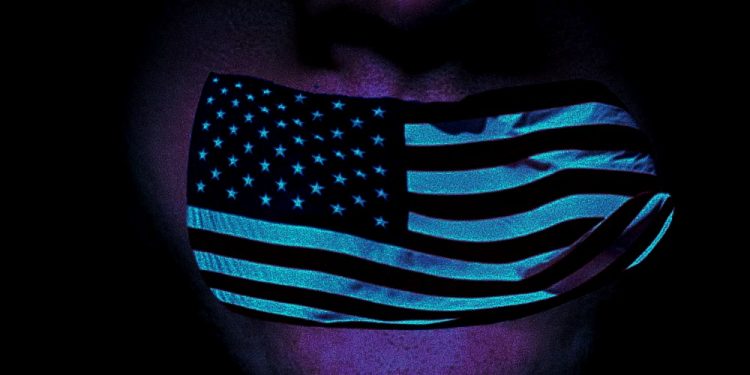Threats to freedom of speech and efforts to suppress dissenting views and voices have been on the rise over the past decades. They were exponentially intensified since the ascent of social media, and as the political polarization in the West truly took hold of our societies, the powers that be have been using any and all tools at their disposal to “defend” the interests of the establishment against those who might try to publicly question its policies (or even worse, its purpose).
Many of us who have been keeping tabs on restrictions on all kinds of individual freedoms have been aware of this dangerous trend for quite some time already. However, it was during the covid crisis that it became obvious to a lot more people too. Anyone reluctant to fully embrace and follow the state’s edicts and “science-based rules” (which, if you recall, kept changing from week to week) was, at best, branded a “denier” or, at worst, actually arrested in some jurisdictions.
We saw dramatic evidence of that extreme response coming from China, Australia, and the United States, among other places. That’s to say nothing of countless other cases of people who lost their jobs or were denied access to basic public services.
Apart from those “straightforward” scenarios of punishment and retribution, though, there were other instances that were much more subtle and indirect. The story of the Canadian “Freedom Convoy” stands out as a solid example of how the banks themselves can be weaponized in the war on dissent. Individuals who supported the antilockdown convoy with donations found their bank accounts frozen, without any warning or due process. This was (or at least should have been) a serious wake-up call for all freedom-loving citizens, whether they agreed with the protesters’ views at the time or not.
Fast-forward to this July, when the “debanking” scandal of Nigel Farage made international headlines. The story, involving political angles, the banking sector, and the mainstream media, was very illuminating, and it revealed just how far establishment forces are willing to go to silence those who disagree with them. The bank at the heart of the scandal is the 330-year-old private bank Coutts, which is owned by NatWest, which in turn happens to have the United Kingdom government as its biggest shareholder following its taxpayer-funded bailout in 2008.
Mr. Farage’s Coutts account was summarily closed without any explanation. When he publicly insisted that it was due to his political beliefs, the bank shrugged him off, while the BBC went on to publish reports suggesting that the move had nothing to do with his ideology. Instead, according to the public broadcaster, it was the state of his finances that was to blame—his account supposedly had fallen below a certain threshold. Mr. Farage didn’t take long to hit back: he obtained a forty-page dossier from the bank exposing internal communications and proving beyond a shadow of a doubt that his allegations were justified.
The documents showed that Coutts’s reasons for the account closures were his support for Brexit and Donald Trump and his “transphobic” and “xenophobic” views, among many other beliefs that he had expressed that were not “compatible with Coutts.” As Mr. Farage himself highlighted, “This story is not just about me. You could be next . . . if this situation is left unchecked, we will sleepwalk towards a China-style social credit system in which only those with the ‘correct’ views are allowed to fully participate in society.”
Indeed, the story clearly struck a nerve with the general public, and it quickly snowballed into an industry-wide and soon nationwide cause of outrage. The BBC had to apologize, and the CEO of NatWest, Dame Alison Rose, was forced to resign, but that wasn’t enough to appease all those who finally realized the disproportionate and largely illegitimate and unchecked power that banks can have over their customers.
As the Financial Times reported, “It raised wider questions about the ability of banks to remove accounts without explanation, leaving them or their small businesses cut off from the mainstream financial system. In an increasingly cashless world, having a bank account has become an essential service. David Davis, former Brexit secretary, likens closing someone’s bank account to cutting off their water or electricity supply. ‘You should be able to get a bank account regardless of your political views, whether you are a communist or a fascist,’ he says.”
The key takeaway from all this, however, is not this particular story itself. It would not be wise to regard it as an isolated incident or as something that could only ever affect account holders that have a high profile or a large audience. To the contrary, if it can be done to Nigel Farage, it can be done to anyone.
The lesson to be learned is that the threat is posed by the banking system itself, and that is why it is more important than ever to rethink your own financial structure and your plan. Keeping part of your savings outside the banking system and in physical precious metals is the only reliable way to protect yourself against the whims and trespasses of both governments and banks.
About the Author
Claudio Grass is a Mises Ambassador and an independent precious metals advisor based out of Switzerland. His Austrian approach helps his clients find tailor-made solutions to store their physical precious metals under Swiss law. ClaudioGrass.ch. Article cross-posted from Mises.






Excellent article!!!
And recall it was former DHS character, Juliette Kayyem (also on the Atlantic Council) who suggested reprisals against the Canadian truckers and their supporters! (Kayyem is a senior advisor to NSO Group, an Israeli technology firm known for its Pegasus spying tool which was involved in the brutal murder of Saudi dissident Jamal Kashoggi!)
And between Jan. 6, 2021 and Jan. 13, 2021, some commercial bank accounts (and social media, cellphone, twitter and email accounts) of President Trump were summarily closed!
A finance professor in 1973 remarked that the ownership of the banks was their major secret! Who owns the banks???
Author Gary Allen writes in The Rockefeller File that in 1973, “David Rockefeller met with twenty-seven heads of state, including the rulers of Russia and Red China.”
And Rockefeller publicly stated:
“The social experiment in China under Chairman Mao’s leadership is one of the most important and successful in human history.”
EXCERPT:
Dick Eastman
The Truth Hound
When Henry Kissinger and David Rockefeller met with Zhou Enlai in China in 1973—just after President Richard Nixon had visited China establishing official relations—an understanding was reached whereby the U.S. would supply industrial capital and know-how to China.
In return Kissinger-connected corporations would gain the monopolistic advantage of low-cost labor production which could outcompete all U.S. domestic industry.
The comparative advantage gained was being able to hire Chinese laborers who were ready to work hard at exceedingly low cost—with no drugs, no alcohol, a strong work ethic, no unions, no paid benefits and weak environmental standards.
And with such a large labor pool, burned out workers could simply be replaced. This gave the Rockefeller/Kissinger corporations a major edge over their domestic U.S. competitors who had to pay relatively high wages, high regulation costs, deal with union strikes and collective bargaining etc.
http://21stcenturywire.com/2016/12/31/us-middle-class-still-suffering-from-rockefeller-kissinger-industrial-transfer-scheme-to-china/